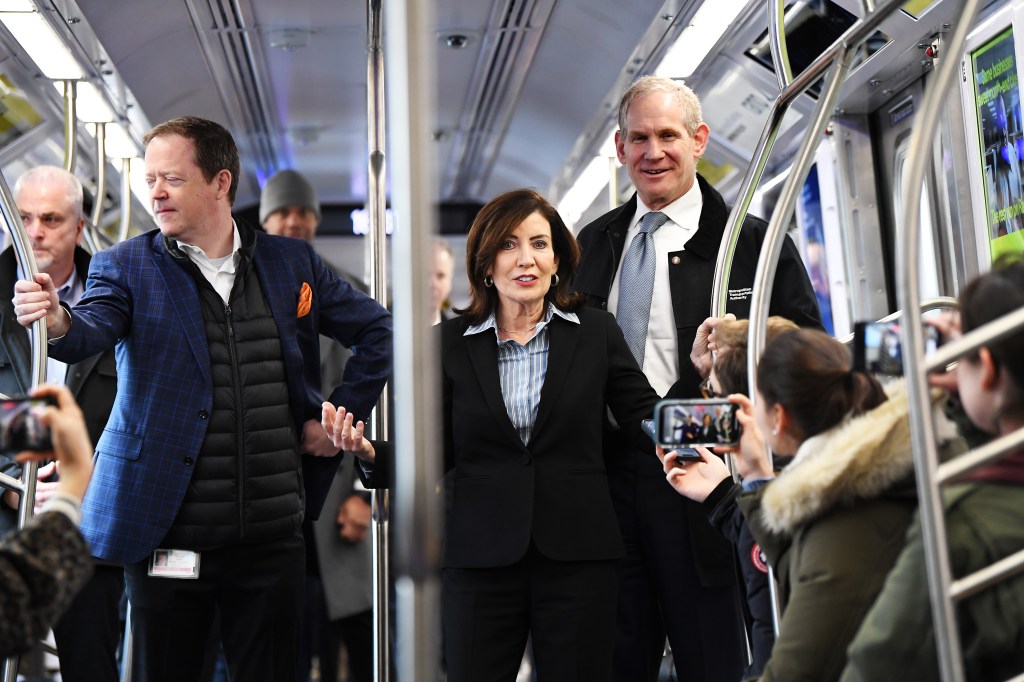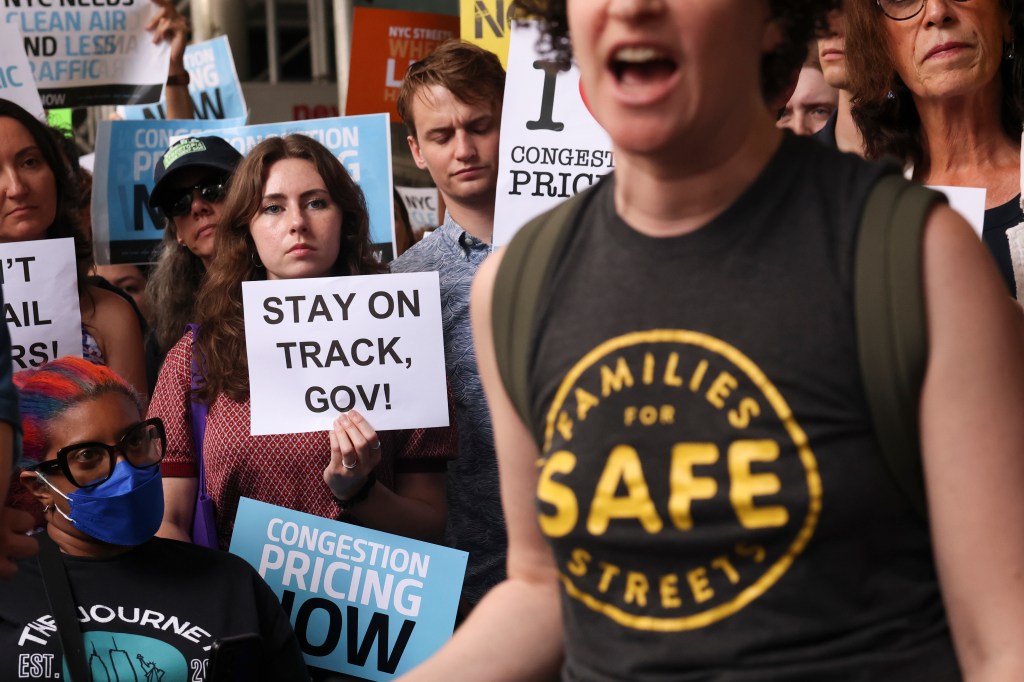Congestion pricing isn’t dead yet, according to the head of the transit agency.
Janno Lieber, the MTA’s chair and CEO, broke days of silence Monday on Gov. Kathy Hochul indefinitely pausing the controversial $15 toll program.
The MTA will be ready to forward with congestion pricing “if and when” the program gets the green light, Lieber said.
“We at the MTA aren’t giving up on congestion pricing, not at all,” he told reporters from MTA headquarters in lower Manhattan Monday afternoon.

But Lieber made clear that Hochul’s last-minute decision to stop Manhattan tolls — which would have raised $1 billion a year for the MTA — pulled the rug out on a host of major projects and service upgrades that transit officials had hoped to fund through congestion pricing.
Transit officials will scramble to conduct a review to reprioritize and shrink projects in the agency’s current capital plan, Lieber said.
“We’re going to fight like hell to make sure we don’t have to reduce service,” he said.
“It may feel right now like things are a little crazy, even that there’s a crisis. But we need to stay focused so that we can maximize the situation for our riders.”
Lieber’s portrait of an MTA conducting triage contrasted wildly with Hochul’s own assessment just a few hours earlier.
Hochul promised any funding problems for projects would be resolved, but did not provide details.
“To assume that the only funding source had to be congestion pricing shows a lack of imagination about understanding other opportunities to fund these projects,” she said.
But Lieber’s outlook was more grim.
Major projects that transit officials need to make sure can continue include the Second Avenue Subway extension, which recently received a $3.4 billion injection from the federal government, he said.
“We’ve got a tall order and we’re behind the eight ball right now,” he said. “That’s why we’re taking these, frankly, very serious steps to carve up the capital program and make sure we don’t let the system fall into disrepair.”
But congestion pricing opponents pushed back on Lieber’s dour assessment.
“The sky isn’t falling. The world and the MTA keeps spinning. The MTA has all the money it needs to run a superior mass transit system,” said former councilwoman and retired judge Kathryn Freed, co-founder of New Yorkers Against Congestion Pricing Tax.

“What’s needed is an audit, a new administration, innovation and a backbone to stop fare beaters.”
Many New Yorkers, including some opposed to the congestion plan, have criticized Hochul for scrapping congestion pricing without a funding Plan B for the MTA — a situation shown in stark relief last week when lawmakers didn’t even vote on two funding proposals, including a tax increase, floated by the governor.
Hochul’s decision to suspend congestion pricing without an alternative revenue in place is “gubernatorial malpractice,” said TWU International President John Samuelsen, a non-voting member on the MTA board.
The focus now must be on basic state of good repair and maintenance, not expansion programs, said Samuelsen, who represents workers who do those jobs.
“It’s like the difference between medically necessary surgery and elective surgery,” he said.
– Additional reporting by Dorian Geiger.














